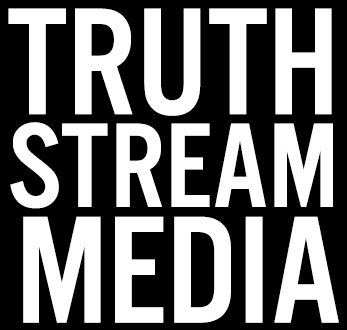Ben & Jerry’s Sticky GMO Position

Are ‘Responsible’ Companies Shunning GMO or Stuck Inside the Big Agra Machine? Ben & Jerry’s, as a Unilever subsidiary, is in a sticky position.
Ben & Jerry’s finds itself in a peculiar position, as a unique ice cream company that is simultaneously a leading brand in socially-conscious foods and yet a cog in the machine of a consolidated market now under growing consumer pressure to adopt GMO labels or face boycott as a shunned name brand.
We Are Change Connecticut caught up with Jerry Greenfield, co-founder of Ben & Jerry’s, during a promotional ice cream giveaway to accompany Greenfield’s testimony before the Connecticut General Assembly in favor of HB 6519, a proposed mandatory labeling law which would require the “clear and conspicuous” words “Produced with Genetic Engineering” to appear on all genetically modified foods sold in the state.
Greenfield acknowledged that while Ben & Jerry’s parent company Unilever opposed Prop 37, Ben & Jerry’s was moving towards sourcing totally non-GMO products and even absorbing the costs of the transition without increasing ice cream prices. He said 80 percent of Ben & Jerry’s is currently non-GMO by volume, leaving the various cookie and candy add-ins as the likely modified culprits. In 2010, the company dropped the “all natural” label, which is essentially meaningless, after consumer pressure created heat over less-than-natural ingredients like maltodextrin and corn syrup.
Although the founders no longer control the ice cream giant, they are personally stumping for more transparency via labeling:
For those with a dog in the fight, the battle over California’s Prop 37 became a line in the sand, with vociferous calls to support manufacturers who financially backed advocacy for mandatory labeling and demands to shun “traitor” brands that market their products around a wholesome image but refused to lend their weight towards passage of what would have been a landmark law.
Ben & Jerry’s was one brand who made the “traitor’s” list, because its parent company, Unilever, who bought the ice cream company in April 2000, joined other mega-food conglomerates in spending a reported $467,000 to defeat Prop 37, allowing biotech foods to remain masked in the food supply without disclosing their supernatural origins.
Greenfield acknowledged that while Ben & Jerry’s parent company Unilever had not backed Prop 37, Ben & Jerry’s was moving towards sourcing totally non-GMO products and even absorbing the costs of the transition without increasing ice cream prices.
On the other hand, Ben & Jerry’s, whose founders have advocated many causes over the years, were at the forefront of opposing (Monsanto’s) rBGH, the genetically-modified recombinant bovine growth hormone that was injected into cattle primarily at mass-scale farming operations to increase milk production.
In 1997, Ben & Jerry’s began advertising the lack of rBGH via a label on their ice cream products, making their iconic Vermont-based dairy deserts one of the most recognizable brands resisting the increasing influence and presence of biotech in food products. They later had to sue for the right to include such a label, though the FDA, pressured by a Monsanto lawsuit, added a disclaimer that dubiously states that “no significant difference has been shown between milk derived from rBGH-treated and non-rBGH-treated cows.”
To the contrary, investigative reporters have uncovered the fact that many cows became sick and/or deformed when given the growth hormone, and it has been linked to cancer in those who drink it.
The rBGH fight became a prototype for the larger and more all-encompassing GMO struggle for the right to know what is on our plates, the ability to access truly natural foods and to defund or outright ban products which numerous animal studies suggest are dangerous enough to cause cancer, infertility, miscarriages, birth defects, organ failure, auto-immune issues and more.
Today, Ben & Jerry’s is taking yet another interesting path, as the first wholly owned subsidiary to join what is known as “B Corporations,” an emerging movement of companies who have separated social responsibility and environmental concerns from the primary consideration for shareholders — profit. It essentially amounts to certification of adherence to principles which, however well-defined under the “sustainability” rubric, may point towards a new direction in rule by corporations that at least pays lip service towards the interests of society.
Ben & Jerry’s CEO Jostein Solheim told the London Guardian in a story profiling their actions as a B-corporation,
“We feel other businesses will learn and benefit from this. That position of being the first wholly owned subsidiary to become a certified B Corp is tremendous. The level of transparency and willingness to be open and honest is a testament to the relationship between Unilever and B&J’s, which we continually work for. It really helps put Ben & Jerry’s back into the pioneering realm, this time for other businesses who may find themselves in a similar setting.”
The larger questions remain: what is the best way to advocate safe food in a world complicated by biotechnology and corporate dominance? Can companies like Ben & Jerry’s, who have clearly advocated socially responsible positions be allies in that fight, even as they are wholly owned by mega-corps like Unilever, who make up one of the ten companies that “control your consumption”?
Answers so far are convoluted at best, but we have already seen how Wal-Mart, ConAgra, General Mills, Coca-Cola, Pepsi-Frito Lay and others have been pressured by consumers to give in to mandatory labeling initiatives in order to avoid backlash that could impinge upon profits or even give momentum to movements for an outright ban.









